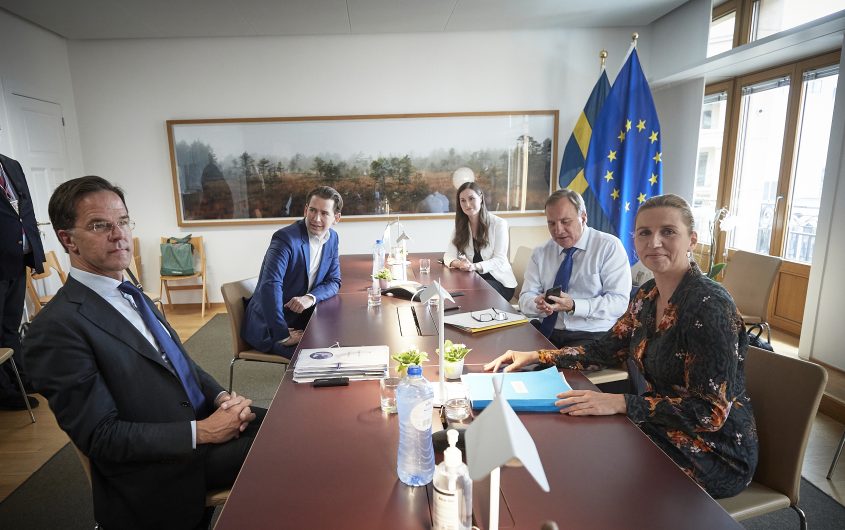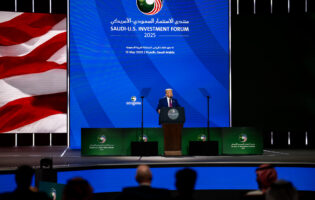
After the EU Summit: Without the UK, A Single Economic Future?

Peter S. Rashish
Vice President; Director, Geoeconomics Program
Peter S. Rashish, who counts over 30 years of experience counseling corporations, think tanks, foundations, and international organizations on transatlantic trade and economic strategy, is Vice President and Director of the Geoeconomics Program at AICGS. He also writes The Wider Atlantic blog.
Mr. Rashish has served as Vice President for Europe and Eurasia at the U.S. Chamber of Commerce, where he spearheaded the Chamber’s advocacy ahead of the launch of the Transatlantic Trade and Investment Partnership. Previously, Mr. Rashish was a Senior Advisor for Europe at McLarty Associates, Executive Vice President of the European Institute, and a staff member and consultant at the International Energy Agency, the World Bank, UNCTAD, the Atlantic Council, the Bertelsmann Foundation, and the German Marshall Fund.
Mr. Rashish has testified before the House Financial Services Subcommittee on International Monetary Policy and Trade and the House Foreign Affairs Subcommittee on Europe and Eurasia and has advised three U.S. presidential campaigns. He has been a featured speaker at the Munich Security Conference, the Aspen Ideas Festival, and the Salzburg Global Seminar and is a member of the Board of Directors of the Jean Monnet Institute in Paris and a Senior Advisor to the European Policy Centre in Brussels. His commentaries have been published in The New York Times, the Financial Times, The Wall Street Journal, Foreign Policy, and The National Interest, and he has appeared on PBS, CNBC, CNN, NPR, and the BBC.
He earned a BA from Harvard College and an MPhil in international relations from Oxford University. He speaks French, German, Italian, and Spanish.
The European Union’s €750 billion “Next Generation EU” pandemic recovery fund announced at the EU summit on Tuesday has broken important new ground. Assuming the European Parliament gives its approval later this year, it will mark the first time the European Commission (the EU’s executive arm) will be able to borrow on the capital markets to make grants to its 27 members.
It will also push the European Commission to raise more of its own resources (as opposed to those granted to it by the member states) through environmental, digital, and financial taxes. So whether on the expenditure or the revenue side of the equation, this is a major step forward in EU integration.
And with these advances, the EU’s lopsided economic structure is beginning to come into balance: finally, the monetary union (the euro currency) is gaining some counterweight from these key steps toward fiscal union.
This history-making summit has also crystallized new political dynamics within the EU.
While France and Germany pushed for the European Commission’s proposal of €500 billion in grants to €250 billion in loans, smaller northern European member states known as the “frugal four” (Austria, Denmark, the Netherlands, and Sweden) argued for providing the entire €750 billion in new EU recovery funds as loans that would have to be paid back, rather than grants. They could claim a partial victory at the summit, as in the end the original European Commission proposal turned into €390 billion in grants to €360 billion in loans.
With the UK now gone from the EU, the frugal four (joined at the last minute by Finland) could no longer hide behind London’s traditional role as a brake on further integration and were forced to come forward. These five countries have a $2.56 trillion collective GDP that is nearly identical to Britain’s at $2.86 trillion, so they carry some weight. The UK may have left, but not its penchant for contrariness.
To be fair, had the UK participated in this summit it is not just the ratio of grants to loans that would have been on the table, but the entire institutional structure for dispersing them. The UK could very well have demanded as a condition for signing on to the deal that the EU countries manage the recovery fund on a voluntary, inter-governmental basis—that is, outside the integrated EU framework.
Still, the frugals were able not only to reduce the amount of grants in the final package. They also secured rebates to their membership contributions as part of a new, seven-year €1.07 trillion EU budget, while long-term investments in research, digitalization, the green economy, and educational exchanges were reduced from what the Commission originally proposed. The rebates mirrored British demands under Prime Minister Margaret Thatcher in the 1980s that secured a reduction in UK payments into the EU budget.
In the end, either the European Union (and especially the even more integrated Eurozone) has a single economic future or it doesn’t. If it does, one-time grants to member states temporarily in trouble due to an external shock like the current pandemic are not charity; they are a form of self-help. Although the initial ambition had to be scaled back, this EU summit has enshrined that idea.









